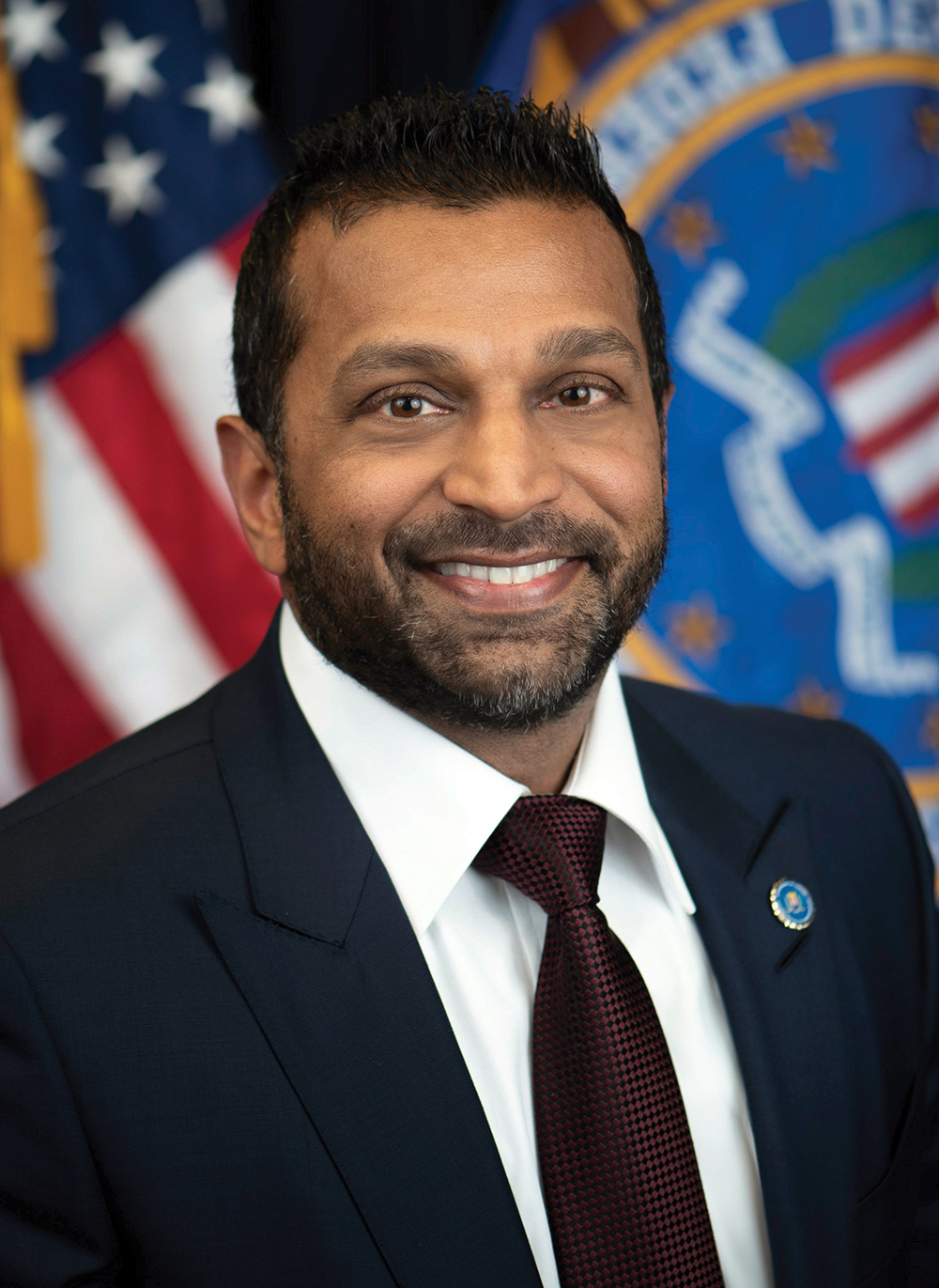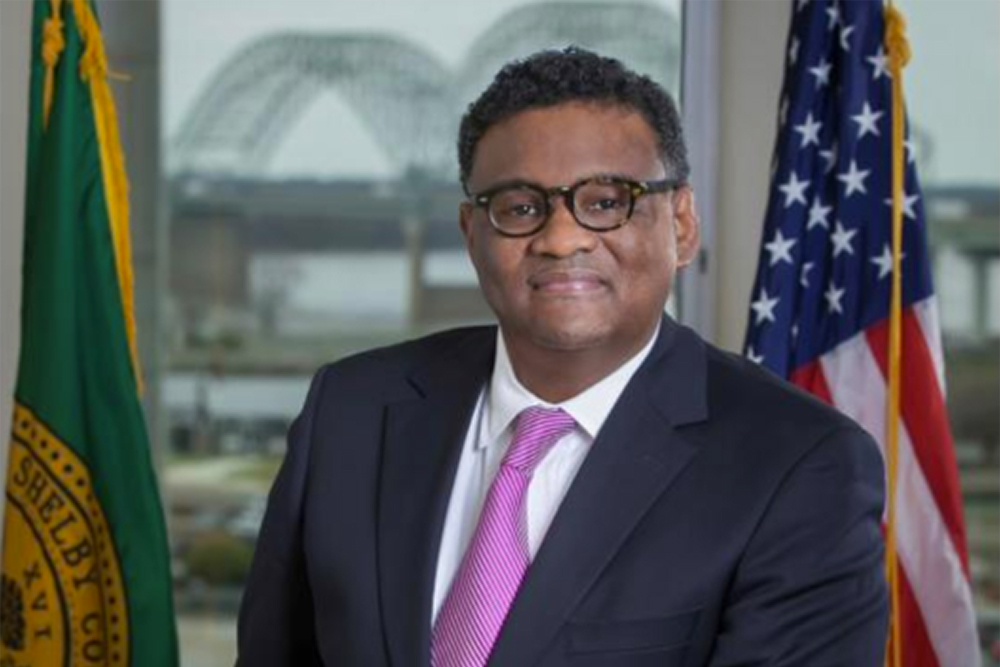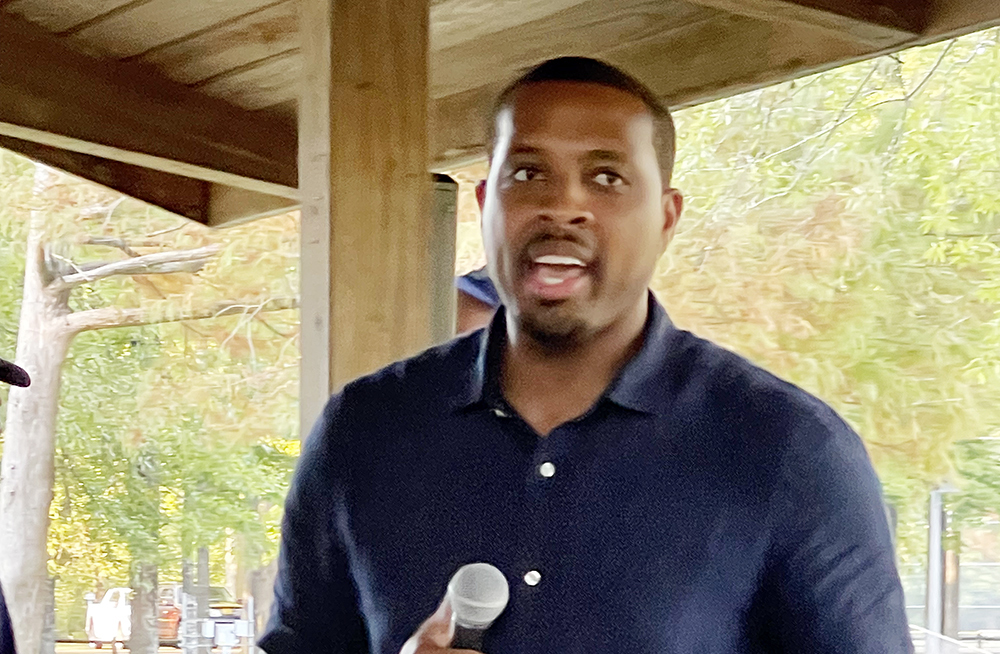Early on in Monday’s regular business session of the Shelby County Commission, Commissioner
Melvin Burgess, a Democrat, moved to defer for two weeks a vote on appointing someone to fill a Judicial Commission vacancy, on the grounds that a discussion on the matter would crowd out some necessary and potentially lengthy deliberations on the county budget and tax rate for fiscal 2015-16.
That was either a face-value statement, as Burgess insisted, or a political maneuver, as the Republican members of the commission — or most of them — suspected, and very shortly the provisional consensus on a budget/tax rate combination that had apparently been reached in a lengthy commission session on May 20th began to come asunder.
Several of the GOP members — conspicuously excluding Steve Basar, who supported Burgess’ motion — objected that most of the 15 applicants for Judicial Commissioner were sitting in the commission audience and had cleared their personal slates in order to be present for the scheduled vote.
; Privately, they began to sense that some deal had been made that involved trade-offs of various kinds, and Basar’s support of the Burgess motion convinced some of them, at least, of something that Commissioner David Reaves, a GOP member from Bartlett, was willing to voice later on:
“It all goes back to the chairmanship vote,” Reaves said, referring to a reorganizational vote of the newly elected commission last fall. Basar, who had been vice chair of the previous commission, had expected to be elected chairman but was stunned to find that most of his fellow Republicans were committed to other candidates. In the end, a majority of Republicans united behind Democrat Justin Ford, who had often voted with the GOP contingent during his first term.
Whatever the reason for that reversal — and they were probably as much personal as political — it made for a commission divided along clearly partisan lines, with the body’s Democrats, plus Basar, on one side, and the Republicans, plus Ford, on the other.
For weeks last fall, the two factions waged procedural warfare, with the Democratic/Basar coalition seeking either to unseat Ford as chairman or to drastically limit his authority. In the end, Ford survived, though with modestly curtailed prerogatives, and the showdown eased up. It, indeed, had been largely forgotten, until Monday, when Burgess made his motion.
Ford, as chairman, attempted to disallow any deferral, but in the resultant vote, Burgess’ fellow Democrats, plus Basar, prevailed.
“Basar tipped his hand,” Reaves said. “He’s looking toward September, for the next chairman’s vote and trying to gain some leverage. Why else would he vote that way? It allowed us to figure out quickly that he had flopped.”
Basar denied any such motive, but he agreed that the Republicans began to shift, more or less in unison, to a common strategy, “once they saw me voting again with the Democrats.”
One consequence was a defeat for a long-pending ordinance proposed by Basar to apply pedestrian safety laws to unincorporated areas of Shelby County. Basar needed nine votes, but Republicans Reaves and Terry Roland, who had agreed to help him meet his quota, withdrew their support.
Subsequently, the old arithmetic of Democrats-plus-Basar versus Republicans-plus-Ford reasserted itself on vote after vote, preventing agreement on matters that, as of the marathon commission meeting of May 20th, had seemed either settled or within easy reach.
The commissioners had then seemed to agree on a formula dividing some $1.8 million equally between each of the 13 commissioners for them to distribute to non-profit organizations in their districts. That matter, now involving a lesser sum of $1.3 million and altered to include other services and recipients beyond non-profits, was referred back to committee on Monday.
More importantly, a sense of distrust had arisen among the commission Republicans regarding what they thought had been a common commitment to use part of a $6 million surplus claimed by the administration of Mayor Mark Luttrell to lower the county tax rate one cent, from $4.37 to $4.36.
The GOP members now began to suspect behind-the-scenes collusion between the administration, which had never been sold on the tax decrease, preferring to use any left-over differential on infrastructure, and Democratic members, who, now supported by Basar, were proposing to raise several sums apparently agreed upon on May 20th — notably for the Sheriff’s Department and Juvenile Court, each of which were seeking significant increases.
Consequently, Roland proposed a 4-cent reduction in the tax rate (“as a way of getting one cent,” he would later acknowledge).That went down, by the same quasi-party line vote as before, as did a follow-up vote for the 1-cent reduction.
In the end, a “flat” or stable tax rate at the current level of $4.37 received the same 7-6 vote distribution for the first of three required votes, and all budget items were deferred or referred back to committee.
In a true sense, nothing got resolved on Monday, though several commission meetings, both scheduled and ad hoc, are sure to revisit the budget/tax rate matters between now and the July 1st fiscal-year deadline. And several members, seeing the prospect of consensus slipping further way, are foreseeing that an official arbitration process will need to be invoked.
“Irresponsible,” was Chairman Ford’s verdict on Monday’s meeting.
• On the mayoral-race front, most observers are now betting that the Rev. Kenneth Whalum Jr., the New Olivet Baptist Church pastor and former school board member, will run for mayor, despite his insistence that he will defer to Memphis Police Association President Mike Williams, a declared candidate.
“He’s making noise like he is,” said Williams last week at Broadway Pizza, after one in a series of what will be several organizational meetings, noting that “I have never asked Whalum about not running. … I’m just moving at my pace. Even if he runs, we’re still going to be friends. … My destiny has nothing to do with his destiny.”
•Oh, and make room for Robert “Prince Mongo” Hodges on your tout sheet. The Zambodian prince, a frequent mayoral candidate in the past, says he’ll pull a petition for mayor next week.
• And, almost unnoticed, Joe Cooper (yes, that Joe Cooper) has put together a potentially effective campaign team in his latest quest for a political comeback as a candidate for the City Council Super District 9, Position 2 seat.
Cooper says he expects to spend $100,000 on his race and has engaged the professional consulting team of Matt Kuhn and Mike Lipe to help him do it. Gene Buehler and Karla Willingham Templeton are Cooper’s campaign co-chairs.
Cooper, who serves wrestling legend Jerry Lawler as an agent and manager, says that Thursday of this week will be officially recognized as “Jerry Lawler Day” in both Memphis and Jackson, Tennessee, with Mayor A C Wharton said to be ready to issue a proclamation in his City Hall office on Thursday and Jackson Mayor Jerry Gist honoring Lawler similarly on Thursday night.
• So, guess who else is being touted for Mayor. Yep, Harold Ford Jr.
But not of Memphis, Ford’s erstwhile home base. No, the transplanted former 9th District congressman and 2006 U.S. Senate candidate, is apparently being talked up for mayor of New York, his current abode — the most recent hints of such a prospect coming from Bloomberg Business, which reported last week on a Lincoln Center “American Songbook” gala that, according to the periodical, honored Ford for his fund-raising efforts on behalf of the center.
Said the article: “‘Mayor’ was on the lips of some guests, though not Ford’s. Asked about his interest in leading the city, Ford, who once considered a run for a U.S. Senate seat from New York and has endorsed Hillary Clinton in the 2016 presidential race, said ‘I’m a new father for the second time, that’s what I’m focused on.'”
The next mayoral race in New York will occur in 2017. Current Mayor Bill de Blasio, an avowed liberal, is in some quarters considered vulnerable to a challenge from the center or right.









 JB
JB